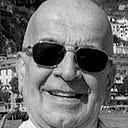Where’s the child I was …
From Pablo Neruda’s “Book of Questions” in poetry I try to reconstruct the past time that can never be “lost”, if a poem manages to revive it. I do it in the languages that are dearest to me and that characterize our European civilization. The simple question the poet asks is what he loses and gains as he grows up. What remains and what remains of the time that was. A difficult relationship with time and also with oneself. The reasons for the separation remain mysterious, like those for the loss. But if this loss often means a definitive disappearance that we are afraid to call “death”, we must not forget that we have also given birth to many “new” things. Both things lost and those found have marked our path which we later discovered to be temporary. Everything would have been directed towards the maintenance of that soul that will not be lost, even if it is no longer governed by the “skeleton” that has protected it for so long. The poet does not say it, but he knows well that it will live well beyond time and space.
— — — — —
Da “Il Libro delle domande” in poesia di Pablo Neruda cerco di ricostruire il tempo passato che non può essere mai “perduto”, se una poesia riesce a farlo rivivere. Lo faccio nelle lingue che mi sono più care e che caratterizzano la nostra civiltà europea. La semplice domanda che si pone il poeta riguarda ciò che perde e si guadagna man mano che si cresce. Cosa rimane e cosa resta del tempo che fu. Un rapporto difficile con il tempo ed anche con se stessi. Le ragioni della separazione restano misteriose, come quelle della perdita. Ma se questa perdita spesso significa una scomparsa definitiva che temiamo di chiamare “morte”, non dobbiamo dimenticare che abbiamo pur dato vita a tante cose “nuove”. Sia le cose perdute che quelle trovate hanno segnato il nostro percorso che abbiamo poi scoperto essere provvisorio. Tutto sarebbe stato indirizzato verso il mantenimento di quell’anima che non sarà smarrita, pur senza essere più retta dal quello “scheletro” che l’ha protetta per tanto tempo. Il poeta non lo dice, ma sa bene che essa vivrà ben al di là del tempo e dello spazio.
Dov’è il bambino che ero,
è ancora dentro di me o è perduto?Sa che non l’ho mai amato
e che neanche lui mi amava?Perché abbiamo passato così tanto tempo a
crescere fino a separarci?Perché non morimmo entrambi
quando è morta la mia infanzia?E se la mia anima è caduta,
perché lo scheletro mi segue?— —
Dónde está el niño que yo fui,
sigue adentro de mí o se fue?Sabe que no lo quise nunca
y que tampoco me quería?Por qué anduvimos tanto tiempo
creciendo para separarnos?Por qué no morimos los dos
cuando mi infancia se murió?Y si el alma se me cayó
por qué me sigue el esqueleto?— — -
Where is the child I was, still inside me or gone?
Does he know that I never loved him and that he never loved me?Why did we spend so much time growing up only to separate?
Why did we both not die when my childhood died?And why does my skeleton pursue me
if my soul has fallon away?— —
Où est-il, l’enfant que je fus ?
Est-il en moi ? Est-il parti ?Sait-il que je ne l’ai aimé
et qu’il ne m’aimait pas non plus ?Pourquoi tout ce long bout de route,
et grandir pour nous séparer ?Pourquoi n’être pas morts tous deux
avec la mort de mon enfance ?Pourquoi, si mon âme est tombée,
ai-je conservé mon squelette ?
